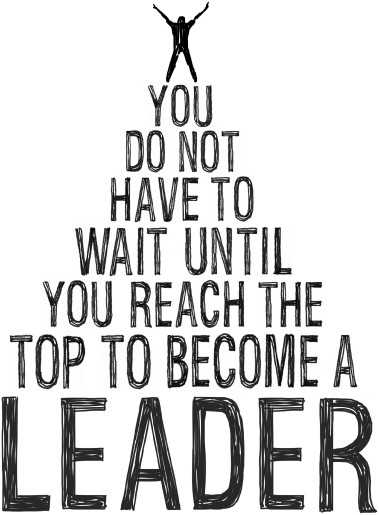05/09/2019 • 4 min read time
Leadership, a responsibility
It's not about the title you hold, it's about your responsibility with people
Lead, Head, Manager, Principal. These are all very hyped positions nowadays. Sometimes it's only a facade to the old and known boss trying to look cool or even to feed someone's ego. In some exceptional occasions, it's the position held by someone who inspire others, make valuable contributions to the team and is capable of leading us to a better version of ourselves.
Let's try go through the business context. People are the most significant resource of a company, those who dedicate themselves every day towards a common goal. The point missed sometimes is that the value these people are capable of creating is proportional to the quality of their environment, and in this scenario, the leader should be responsible for ensuring a fertile ground.
Leadership isn't about the professional title; it's about the responsibility

When we first start, in a Jr position, we are supposed to get the job done, learn a lot, and prove our value delivering results. Keeping up with the good work, we get promoted. Until one day, we land in a leadership position as responsible for the team and the people who now do our previous tasks.
The problem manifests when you are not ready for that, and the only way you know to prove your value is to "deliver results" or show numbers. Your focus stills merely in the number of closed tasks. Leaders shouldn't be strictly focused on these metrics. Leaders don't have a direct influence on the results; it's not something in their hands anymore. Leaders can influence the people, the ones which impact the results. Fail in understand what to focus on, and people might be more concerned about defending themselves than to delivering some valuable result.
When someone asks, "What are the leader traits?" the cliche answer is always something like "charisma" or "vision". Many great leaders are not that charismatic or visionary. The non-negotiable leader characteristic is courage.
Courage, because it's hard to face the external pressure, it's hard to face a CEO or a client who wants everything in a short time and say "no" thinking about what is the best for the team. The courage we are talking about is not something hidden deep in your soul that you have to dig to find. It's something external; it's something that comes with the feeling that your team has your back.
How to measure leadership

Think for one minute about people going to the gym aiming to get fit. They go to the gym on the first day, work out, go back to their houses to look in the mirror and booom... Nothing changed! They try it another day, work out again, look in the mirror and now... Nothing! However, if you keep going, with consistency, you will inevitably get in shape.
Leadership is about that, about consistency. You can't measure it in the short term, and this is one of the reasons why many managers keep making decisions based exclusively in number and forgetting about the people. It's only possible to measure the leadership results in the long run when the company has not only the results but also people who love their jobs, are engaged to the company mission and are loyal.
The problem lies in the world tendency to quantify everything and try to fit the leadership in an intensity measure. We can't expect to put someone in a 2 days course about leadership and magically have an inspiring leader.
Two workout days wouldn't help you to get in shape, and again the consistency is the key. Working out for a few hours every day will get you there. Taking small actions every day, even if it seems meaningless such as asking how someone is doing and caring about the answer is what contributes to make you a true leader.
Serving as a leader

Everyone likes to joke about the Alcoholics Anonymous first step that says, "first, you have to admit that you have a problem." However, it's the last step that may be the most important. Several studies show that alcoholics who followed all the steps except for the last one have greater risk of drinking again.
The last step is to "help another alcoholic to overcome the addiction." It's not about you; it's about the other. It's not about how can you lose 5kg; it's about how you can help someone else get healthier. It's not about you becoming the most successful guy in the room; it's about the impact that you can have in other people's careers.
When we notice that our leader cares more about our life balance, our well-being and our individual goals, then we want to bleed to propagate this leader’s vision and complete the mission at his side. It becomes a feeling of being part of something to the greater good.
Working hard in something we don't care about it's known as stress. Working hard for something we love, it's called passion.
Talking about passion, stop saying, "Here we only hire passionate people." Give people something to believe, space to make mistakes and learn from it and the passion will naturally grow.
This article is a humble TL;DR from an interview with the fantastic Simon Sinek plus some personal notes. The interview is 1 hour long, but I can guarantee it's worth each second.